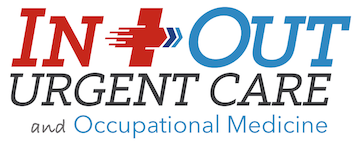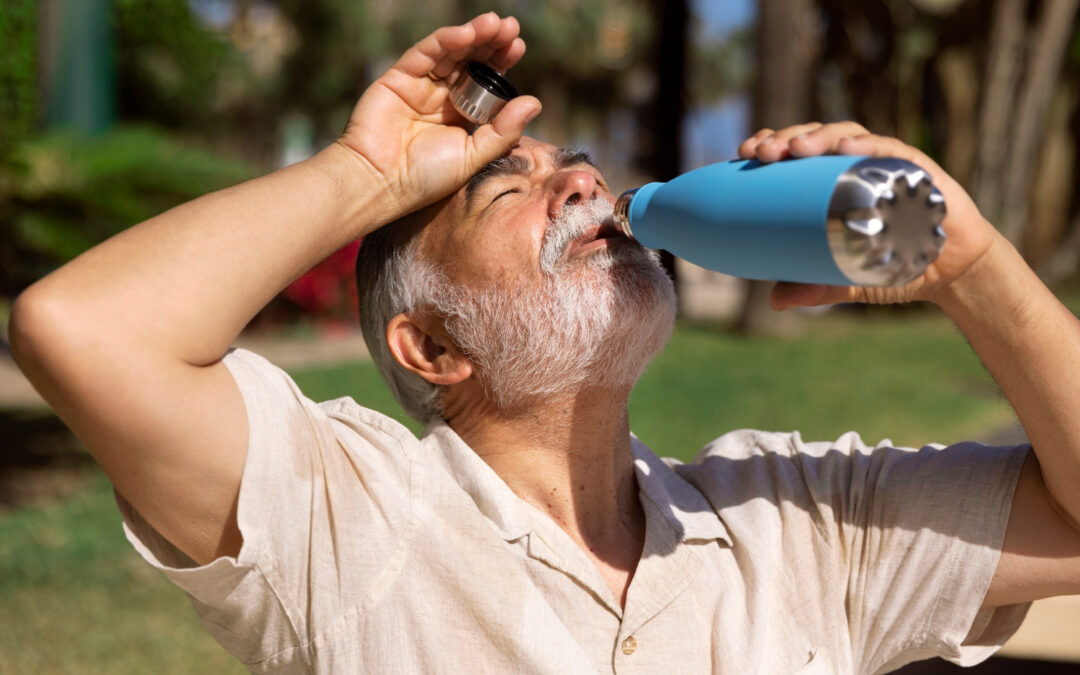Dehydration is a common, yet often overlooked, condition that occurs when the body loses more fluids than it takes in, disrupting the balance of essential nutrients needed for proper body function. Though often associated with scorching summer months, dehydration can affect individuals year-round and in various situations, from intense workouts to busy daily routines. Understanding dehydration prevention, recognizing its symptoms, and knowing when and where to seek professional treatment is critical to maintaining your health and well-being.
For residents of New Orleans and North Shore, In & Out Urgent Care offers personable, affordable, and convenient treatment for non-life-threatening conditions, such as dehydration. With a comprehensive approach to hydration-related concerns, In & Out Urgent Care’s team of healthcare professionals is dedicated to providing expert care and guidance tailored to the needs of each patient.
In this blog post, we will dive into the subject of dehydration, discussing essential information on prevention techniques, warning signs of the condition, and how to obtain appropriate treatment at In & Out Urgent Care. Armed with this knowledge, readers can effectively minimize the risks of dehydration, ensuring optimal overall health and performance in various aspects of life.
In & Out Urgent Care is your reliable ally in the battle against dehydration. Trust their team of medical experts to provide the care, support and resources you need to stay healthy and hydrated throughout the year.
Understanding Dehydration: Causes and Risk Factors
Dehydration occurs due to an insufficient intake of fluids or an increase in fluid loss from the body, generally through sweat, urine, or diarrhea. Various factors can contribute to dehydration, including:
- Excessive heat and sun exposure: Hot weather, particularly in combination with prolonged sun exposure, can result in excessive sweating, leading to fluid loss and dehydration.
- Physical activity: High-intensity exercises, endurance sports, and activities in hot environments increase perspiration, heightening the risk of dehydration.
- Illness: Fever, vomiting, and diarrhea can cause significant fluid loss, resulting in dehydration. Additionally, illnesses may lead to a decreased fluid intake due to loss of appetite or difficulty swallowing.
- Age: Older adults may experience a reduced sensation of thirst, causing them to consume less water and increasing their risk of dehydration. Children may also be more susceptible due to their smaller body size and faster fluid loss.
Understanding the causes and risk factors of dehydration is the first step to proactive prevention and maintaining healthy hydration levels.
Preventing Dehydration: Smart Hydration Habits
Effective prevention is key to reducing the risk of dehydration and its adverse effects on health and performance:
- Consistent fluid intake: Regularly consuming water and other hydrating beverages throughout the day is vital to maintaining proper hydration levels. Aim to drink at least eight 8-ounce glasses of water per day, adjusting the amount based on individual needs, activity levels, and environmental factors.
- Pacing your exercise: Gradually increasing the intensity and duration of your workouts can help your body adapt to the increased fluid loss, reducing the risk of dehydration during physical activity.
- Heed your thirst: Paying attention to your body’s thirst signals is essential for managing your hydration status. However, always remember that thirst may not be a reliable indicator of your body’s fluid needs, particularly among older adults.
- Snack on hydrating foods: Incorporating water-rich foods, such as fruits and vegetables, into your diet can boost your hydration levels and act as a valuable supplement to fluid intake.
- Electrolyte balance: For athletes or those participating in high-intensity activities, sports drinks that contain electrolytes can help replenish essential nutrients lost through sweat and prevent dehydration.
Developing and maintaining these healthy hydration habits can effectively minimize the risk of dehydration, promoting overall well-being and improved performance.
Recognizing Dehydration Symptoms
Identifying the signs and symptoms of dehydration allows for prompt action and treatment:
- Thirst: An increased sensation of thirst is often one of the first signals that your body needs more fluids, but thirst alone may not be enough to determine your hydration status.
- Dry mouth and throat: Reduced saliva production, a dry or sticky feeling in your mouth, and a dry throat can all indicate dehydration, signaling the need for fluid intake.
- Dark-colored urine: Dark yellow or amber-colored urine can be a sign of dehydration. Ideally, urine should be pale yellow, indicating adequate hydration.
- Fatigue and dizziness: Dehydration can impair circulation, causing feelings of lightheadedness or dizziness, as well as decreased energy levels.
- Rapid heartbeat: A rapid or irregular heartbeat can be an indicator of severe dehydration and may require immediate medical attention.
Becoming familiar with these symptoms is essential for taking swift measures to replenish fluids and seek professional care when necessary.
Dehydration Treatment at In & Out Urgent Care
For individuals in the New Orleans and North Shore area, In & Out Urgent Care offers comprehensive care and treatment for dehydration:
- Expert assessment: In & Out Urgent Care’s professional team can determine your level of dehydration and recommend the appropriate course of treatment based on your symptoms, medical history, and individual needs.
- Replenishing fluids: Drinking water, electrolyte-infused beverages, or receiving intravenous (IV) fluids at In & Out Urgent Care can help restore hydration and address any associated symptoms.
- Ongoing support: In & Out Urgent Care’s medical professionals can provide guidance on preventing future dehydration occurrences, educating patients on proper fluid intake and hydration strategies.
- Referrals: In cases of more severe dehydration or related complications, In & Out Urgent Care can refer you to specialists, ensuring you receive the best care for your specific needs.
In & Out Urgent Care is dedicated to providing effective, affordable, and personalized care for dehydration in a timely and convenient manner.
Conclusion:
Dehydration poses a significant risk to health and well-being and should not be underestimated. By understanding its causes, adopting preventative habits, and recognizing its symptoms, individuals can effectively mitigate the risks associated with dehydration. In & Out Urgent Care stands as an accessible and proficient provider of dehydration treatment and urgent care in New Orleans and the North Shore, ensuring patients receive expert care and support in maintaining ideal hydration levels. Trust In & Out Urgent Care’s professional team to address your fluid replenishment needs and uphold your overall health, so you can continue to thrive in all aspects of life.

